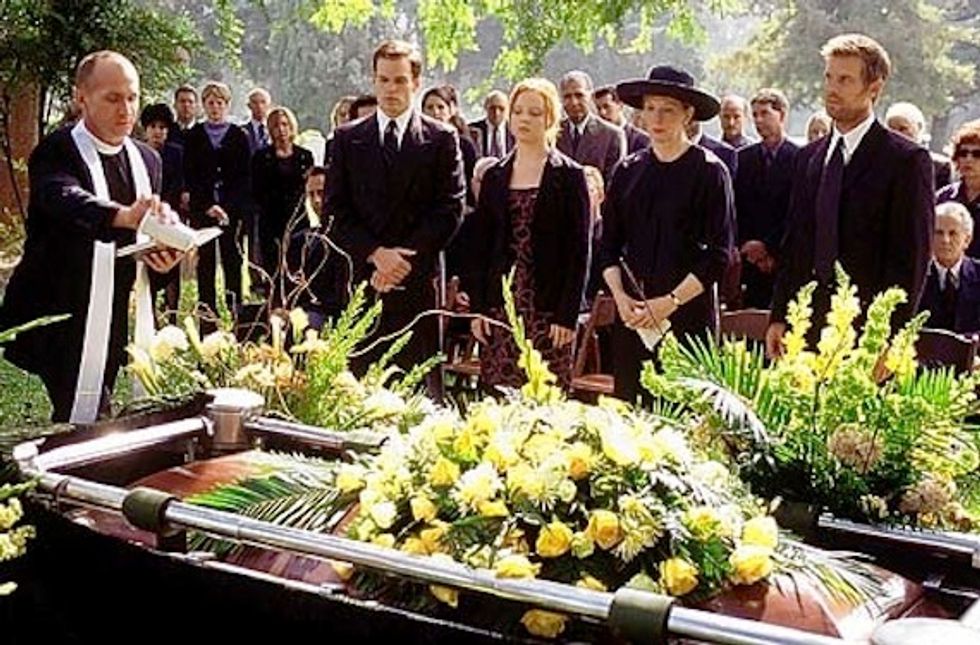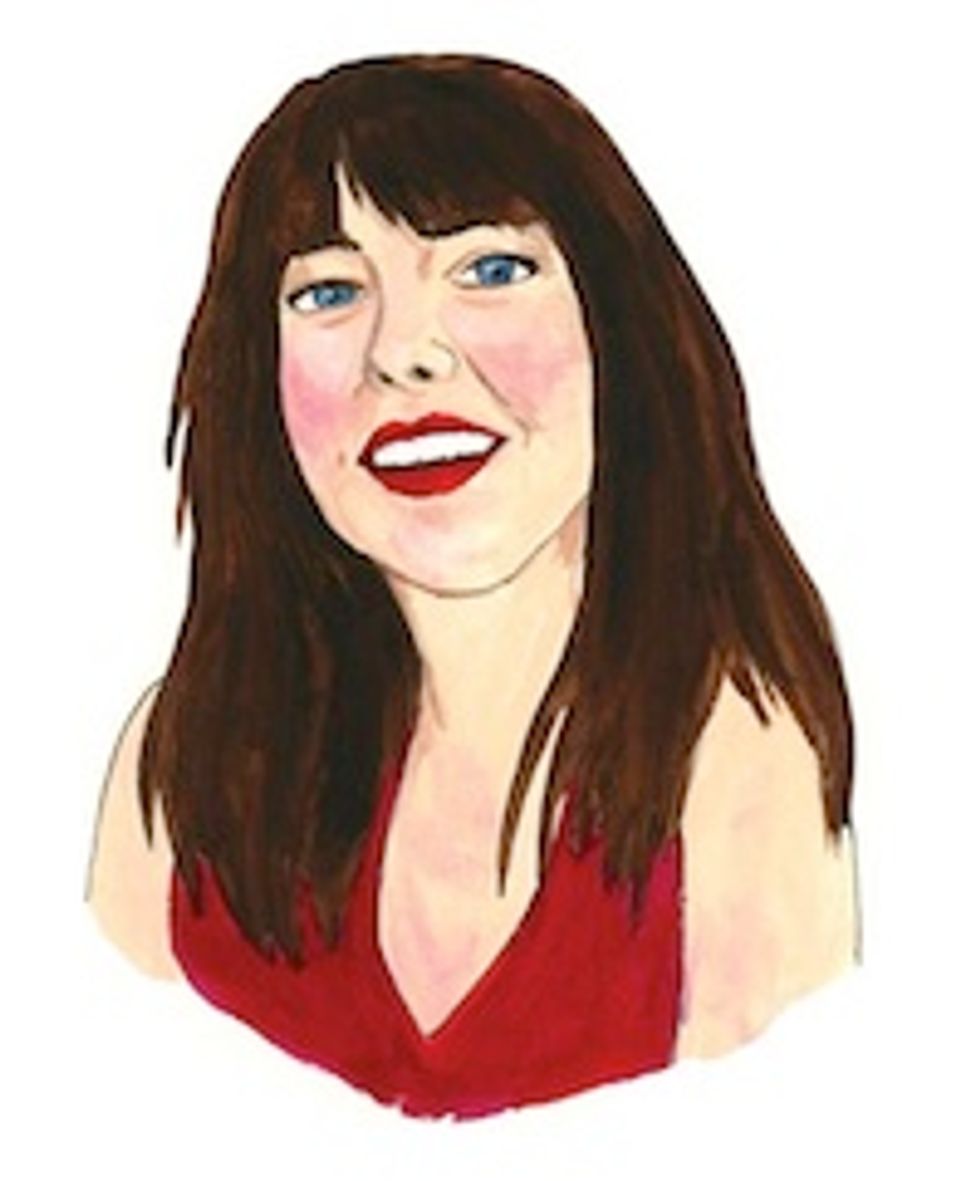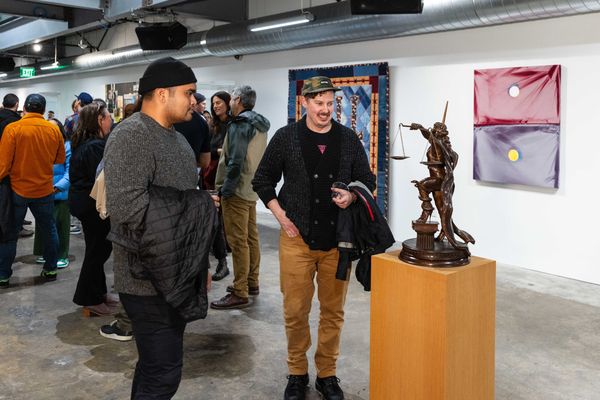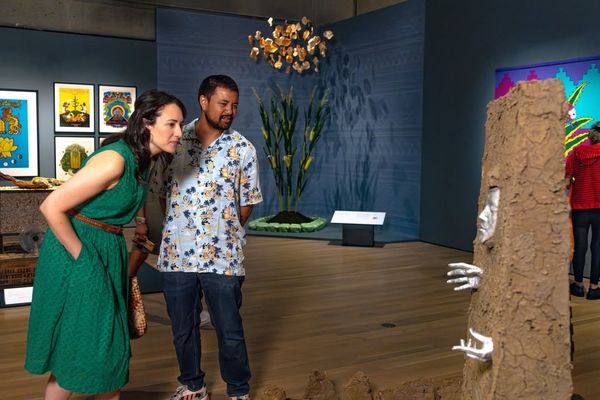Gramma Jane turns 100 years old this January. She’s in good health. She is mostly happy, and she likes Obama. There’s just one problem. Until re-cently, she wasn’t sure how to give away her dead body.
Jane Dawson isn’t your average grandma: She drinks, she swears, she doesn’t like children. She didn’t even like us, her grandchildren, until we were old enough to talk about books. Well into her 70s, she wore dresses slit to the hip—and you would too if you had legs like that. She went to the gym every day until she was 90. When she quit smoking cold turkey just 10 years ago, her friends thought she’d die from the shock. But oh, no. She’s fine. She lives alone, drives a little, is well-known at her branch library, plays bridge three or four times a week, flirts hard with gay waiters, and reads the Los Angeles Times every day. At 99. Best of all, my grandmother is startlingly, obviously, vigorously intelligent—and proud of it. Lots of grandmas are smart, but too few point it out all the time.
Yet for all that, Gramma Jane can be deeply normal, sometimes even grandmotherly. She was a regular old government employee for many years, she adores her family (no matter what she says about the little ones), and she speaks at length about her famous Swedish meatball recipe. It’s as good as she says it is; I’ve seen doubters brought to justice.
My grandma is both average and an outlier. Maybe we all are. In any case, this is a woman who loves to talk about her own death. Who knows whether she actually likes to talk about dying or if she just enjoys seeing us squirm? Either way, I respect it. And as far as I can remember, there were lessons about what DNR means (do not resuscitate), promises to “pull the plug” when the time comes, and after-dinner directives to write our names on little pieces of tape and stick them to things we want “after I die.” Along with all that was always her strong wish to leave her body to science.
I think this stems from Gramma’s Communist days, “from each according to ability,” and from the fiery practicality of anyone who’s ever raised a family during hard times. “I don’t just want to go in the ground,” she says. “Why should I? Some student could be learning something. Really! It just makes more sense that way.” If anyone in the room looks greenish, she adds, “Let ’em cut me up. Find out what’s in there.”
For longer than I’ve been alive, it was a done deal. Some 50 or 60 years ago, my grandmother willed her body to UCLA. They would take her, all of her; her body would be safely left to science, and she had peace of mind.
But things went awry back in 2004 when a donated-body-related scandal rocked the institution. “Los Angeles County prosecutors said Ernest V. Nelson, 51, cut up heads, torsos, and other parts from donated corpses and sold them without UCLA’s permission to medical and pharmaceutical research companies,” wrote Jack Leonard in the LA Times.
“They called the program off,” Gramma explains, and I’m sure they did. But I don’t exactly buy the rest of her story: “When they started it again, I didn’t reapply. I don’t know why. I should have found another school, but I didn’t think to do it.” Huh. Assuming she read the article excerpted above (and she almost certainly did), maybe she didn’t want much to do with any body-donor program. Naturally, Gramma Jane admits to no such fear.
But she was openly concerned. “Where’ll I go now?” she’d ask, feigning tremulousness while holding court during cocktail hour. (She has a “helpless little old lady” act that I someday intend to steal.) But Gramma was genuinely put out. From 2004 to 2012, she didn’t know where she would go when she died. For most of us, this is a spiritual question.
Post-mortem philanthropy may be a higher calling for her too, even if it is washed down with martinis and hidden under layers of tough love. Ultimately, I think my grandmother wants to give away her body simply because it’s her way of making the world a better place. (Currently, she is a regular donor of stuff like money, socks, plastic bags, and even underpants.) Her anti-sentimental ways, her intellectual competitiveness, and her blunt treatment of delicate issues (“My god, you’ve gained so much weight!”) belie her selflessness and her profound appreciation of human interconnectedness. Her decision to give of herself is based on an altruism that is, forgive me, bone-deep.
Recently, UC Irvine accepted Gramma’s brain. At her urging, they’re also taking what she calls “the body.” So our story has a happy resolution: Gramma Jane has given away her dead body and once more has peace of mind. She merrily recounts the details about which program is taking what, exactly. Her brain will go to UCI’s Institute for Brain Aging and Dementia, where they are studying a phenomenon called “tangles.” The school’s standard willed-body program is taking “the body.” What follows is a careful description of how soon “the people” from the university will pick her up when she dies. “I’ve got notes all over the house,” she instructs. “Whoever finds the body has to make the call.” Really? What’s the hurry? “I guess they don’t want the body to spoil, for Crissake.”
You’ll be happy to know that the UCLA scandal seems to have improved the practices of willed-body programs thanks to the donors’ families, who became eagerly litigious in its aftermath, prompting leadership changes and policy clarifications. This gives me peace of mind. Sort of. The living are justifiably allergic to being dead or even talking about being dead. I don’t mean to give the wrong impression here: I am often one of the greenish squirmers at cocktail hour. But most importantly, I admire my father’s mother enormously in her weird quest, taken up for the second time in her life, even though she’s now older than god. Because sure, it’s creepy, but underneath the hard head I can see the sweet heart. As Gramma says, “It’s kind of nice to think you’re doing some good even if you’re dead.”
Hiya Swanhuyser has spent eight and a half years behind the culture desk at SF Weekly, which has only encouraged the writer’s love of all things unusual and independent.
Calling all SF writers: Submit your story for consideration to ledger@7x7.com






















